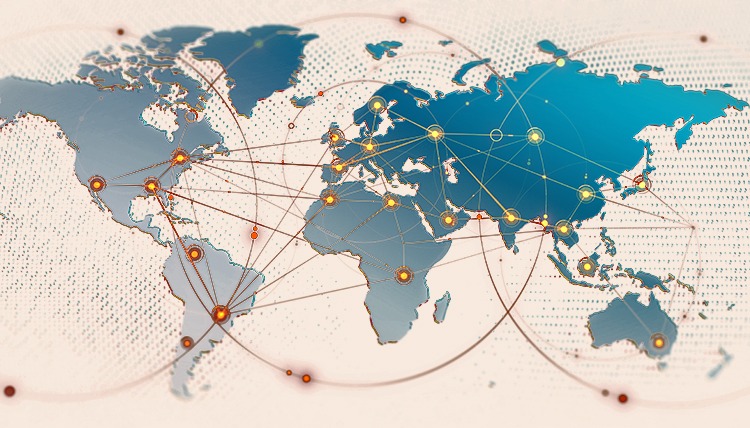Executive Views: Supply-Chain Disruptions & Operational Resilience
PwC’s bi-annual Global Crisis and Resilience Survey reveals companies and business leaders overestimate their resilience despite operating in a period of supply disruption.
Supply-chain disruptions and greater uncertainty
As businesses face a rapidly changing world: the challenges of geopolitical upheaval, inflation, further economic uncertainties as well as disruptions from cyber attacks, supply-chain challenges and climate crises. As a result, the key to success is resilience: the ability to navigate through crises, and the capacity to adapt and succeed in the face of constant disruption. PwC’s Global Crisis and Resilience Survey 2023 delves into how organizations are directing their resources, efforts, and investments toward building resilience to thrive in a state of what PwC terms as “permacrisis.”
The results of the study were released earlier this month (April 2023), which consisted of interviews with 1,812 business leaders between September and November 2022, across many business sectors, representing 42 countries and various industries, including the bio/pharma industry, who shared their observations. The study is PwC’s third study analyzing corporate crisis and resilience data, and for the 2023 study, forty-one of respondents identified as C-Suite executives while 58% identified as non-C-Suite executives.
Data from the 1,812 respondents worldwide provides insights into how business leaders are preparing for and responding to this new world. When asked where resilience falls on the list of corporate priorities, nine in ten (90%) respondents said resilience is one of their most important strategic organizational priorities. Nine out of ten (90%) organizations reported that they have experienced at least one disruption other than the COVID-19 pandemic. On average, organizations experienced three-and-half disruptions in the last two years. Three-quarters (76%) said their most serious disruption had a medium-to-high impact on operations, meaning disrupting critical business processes and services and causing downstream financial and reputational issues.
“Business leaders face an unprecedented level of disruption and uncertainty in today’s rapidly changing environment,” said David Stainback, Co-leader of PwC’s Global Center for Crisis and Resilience, PwC US, in commenting on the study. “Organizations are contending with external macro forces and internal business transformations, and it is against this backdrop that resilience has become one of the most vital strategic priorities in the corporate world.”
The top five reported disruptions include: the global COVID-19 pandemic, employee retention and recruitment, supply chain, technology disruption or failure, and cyber attacks. Excluding the pandemic, supply-chain disruptions have had the greatest impact on organizations—monetary or otherwise–and they have doubled since 2019, according to the report. More than half (60%) of organizations whose most serious disruption was supply-chain related, were most concerned about experiencing a similar disruption again.
While 70% of business leaders express confidence in their ability to recover from various disruptions, the survey data show that many organizations lack the foundational elements of resilience they need to be successful. This confidence gap puts organizations at risk of being exposed, particularly when the disruption spotlight is solely on a given company, as opposed to broader global or sector challenges.
The survey data revealed three significant trends driving, what PwC has called “a resilience revolution”: integration, leadership, and program approach. These trends are further outlined below.
Integration. The PwC study concludes that an integrated resilience program is essential for today’s organizations. “It is no longer sufficient for organizations to work in silos as they address today’s complex and interconnected risks. Businesses are actively moving to an integrated approach to resilience, centrally governing and aligning multiple resilience capabilities around protecting what matters most and embedding the program into operations and the corporate culture,” said an April 6, 2023, PwC press release in presenting key findings from the study.
Leadership. The PwC study says that thriving in what it terms a “permacrisis” requires an executive leader and upskilled teams. It points to three key elements of successful resilience strategy and program: (1) executive sponsorship from the C-suite; (2) a program leader with clear responsibility; and (3) a skilled team to do the day-to-day work.
Program approach. The PwC study emphasizes the need to build operational resilience around what matters most. The firm says that organizations must build operational resilience and ensure that enterprise planning and preparation are part of a broader continuous cycle. As more businesses integrate their resilience programs, many are adopting the core principles of an operational resilience approach, focusing on protecting what matters most and prioritizing investment based on what’s critical to their organization and stakeholders. This allows organizations to manage risks with high reliability and to drive efficiency, the PwC study says.
“The ability to adapt and respond to disruption is vital to maintaining trust built with stakeholders and protecting shareholder value and reputation – all at a time when the expectations for resilience of businesses and government have never been higher,” said Bobbie Ramsden-Knowles, Co-leader of PwC’s Global Center for Crisis and Resilience, PwC UK, in commenting on the study. “To build a trusted and agile organization, it is vital that business leaders invest in resilience across functions and people, and focus on an integrated approach, supported by technology to enable a panoramic view of their risk and resilience landscape.”
The PwC study said that those who have moved to an integrated resilience program are significantly further ahead in many of the core elements of operational resilience, including risk- and threat-assessment processes, exercising and testing, and service- and process-dependency mapping to enable companies “to build a robust corporate immune system where an organization can adapt, flex, and move forward stronger,” said the PwC study.







